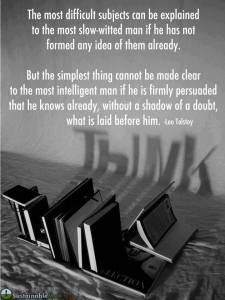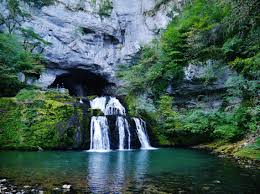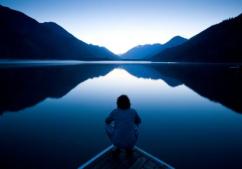I was asked to lead a discussion on My Philosophical Evolution, since my evolution has been quite tremendous over the last couple of years. Having been raised in a very fundamentalist religion, my first experience going to an interfaith gathering was quite extreme. But get this, I was asked to lead this discussion at Freethought Cafe, a gathering of atheists, agnostics, and humanists.
I led with this: "I'm a bit skeptical about telling my story to a bunch of skeptics!"
That got a good laugh, nicely breaking the tension (my tension and stress, that is).
And honestly, those skeptics were probably the most accepting and gracious group I've ever talked with.
Why does my story matter?
I ask myself over and over.
Of course it matters to me.
But why would it matter to YOU?
Our lives are but a blink,
a whiff of smoke in the nostrils,
a wisp of wind in the hair,
a gong in the ear;
and once gonged by death,
we are no more.
So why does my story matter?
None of us gets out of this thing alive.
But why would my story matter?
~~~~~~~~~~~~~~~~~~~~~~~
I'm nothing but a...
A WONDERING WANDERER, WANDERING WONDERER
Struck by Awe and Wonderment in the Face of such Pervasive Mystery.
A Surrender to Wonder. The full and complete Fruition of Letting Go.
What happens when I fully realize and live out what I understand to be true?
From 1.0 to 2.0
I feel like I’m undergoing
An Evolutionary Revolution
A Revolutionary Evolution
Of Mind, Heart, and Will.
Nothing left unturned, undisturbed, unshaken, untroubled.
Nothing left standing that I thought should stand.
Change often comes incrementally, little by little,
But for me it has been disruptive, decisive, and unforgiving.
Nothing that I have chosen,
Something that has chosen me.
A ONCE-TOLD TALE
“Only by exploring and sharing my autobiography can I witness my discoveries of the sacred. My story is not normative. I am under no illusions that I am a saint, a hero, or a model for anyone. I do not write in order to say: Here is the map for you to follow. I only share some of the twists and turns of my journey in order to encourage you to take your own story seriously. Examine the sacred text of your own experience, reconstruct the events and relationships that went into the creation of your being, re-collect memories, and form them into a narrative that makes your life a once-told tale.” (Sam Keen)
“Even the longest, most detailed, and most expressive obituaries always omit the essence of a life: the history of a person’s heart. How many of us wish we had asked more questions of someone we loved, not about what happened and when but about the inner experience of being that person? About hopes and fulfillments, failures and regrets? About moments of despair and moments of meaning?” (Parker Palmer, Healing the Heart of Democracy)
- Keep this in mind: We can argue with each others’ beliefs but we cannot argue with each others’ stories.
- Stories are for expressing ourselves and asking questions. They are not for finding answers. You have not lived my life anymore than I have lived your life. Answers come from within. My answers will always be different than yours just as my perspective will differ from yours and my path will always diverge from yours. But maybe, just maybe, my story will stimulate a new question, a new insight, a new perspective as you live out your story.
- Funny thing, although my belief system has been totally uprooted and overturned, my values are still rock solid. So maybe being human is more about how we live out our lives than it is about what we think we know, and what we say we believe. (https://dbaronirvine.wordpress.com/2013/08/19/guiding-principles/) & (https://dbaronirvine.wordpress.com/2013/08/19/core-values/)
THE POWER OF STORIES
“When we tell our stories to one another, we, at one and the same time, find the meaning of our lives and are healed from our isolation and loneliness. Strange as it may seem, self knowledge begins with self-revelation. We don't know who we are until we hear ourselves speaking the drama of our lives to someone we trust to listen with an open mind and an open heart.” (Sam Keen, Your Mythic Journey, p. xviii)
"I asked myself, 'What is the myth you are living?' and found that I did not know. So... I took it upon myself to get to know my myth, and I regarded this as the task of tasks... I simply had to know what unconscious or preconscious myth was forming me." (Carl Jung)
We are sense-making, meaning-making, storytelling creatures.
This is our power and yet our weakness.
How did this scrawny creature called the human being end up ruling the world?
Since the beginning of homo sapiens, stories have bound us together and driven us apart. Cave drawings were a convention for telling stories to bind together a tribe. And tribal beliefs and territories drove us to war. Now it is our fine arts and books that tell our story. It is stories that have banded and bonded us together, giving us the organizational and strategic power to eventually rule the earth. That is the one distinguishing feature of the human race; we can imagine, put our imaginations into words, tell stories to others about those imaginations, and then choose to believe or not, individually or collectively. This is the process that allows countries, companies, governments, and religions to be formed out of nothing but imagination and vision.
Stories are foundational to culture and society.
Stories are foundational to countries and government.
Stories are foundational to business and the free market.
Stories are foundational to religion and spirituality.
Stories are powerful ways of bringing people together
organizing and civilizing us so that we do not destroy each other.
Stories are very effective ways of explaining the unexplainable,
of understanding that which can't be understood with the human mind...
of making sense of things that don't make any sense.
And yet, our stories can bind us, blind us, hold us back, or trip us up. Just as life is constantly changing and evolving, so must our stories. This evolvement is the lifelong task of story-telling, meaning-making creatures. We must continually progress forward along with our world views (the way each of us sees the world)
"Stories make us more alive, more courageous, more loving. Why does anybody tell a story? It does indeed have something to do with faith, faith that the universe has meaning, that our little human lives are not irrelevant, that what we choose or say or do matters, matters cosmically." (Madeleine L'Engle)
 "Courage starts by showing up and letting ourselves be seen."
"Courage starts by showing up and letting ourselves be seen."













